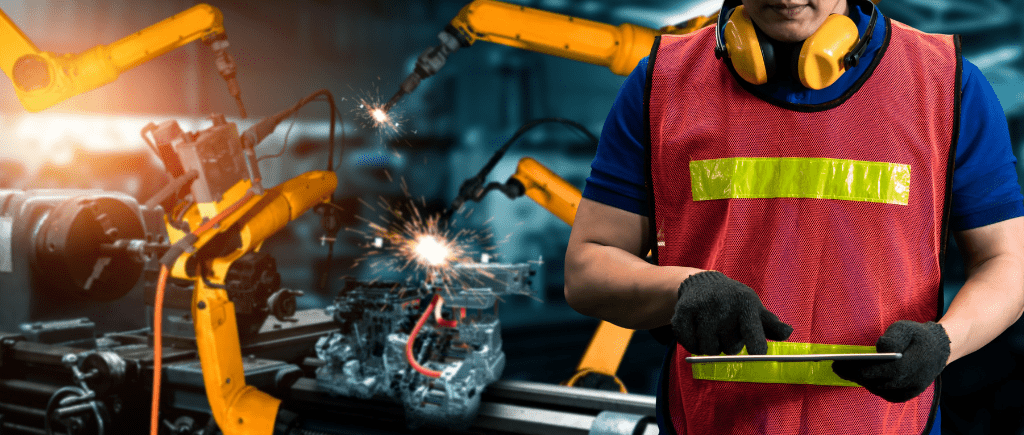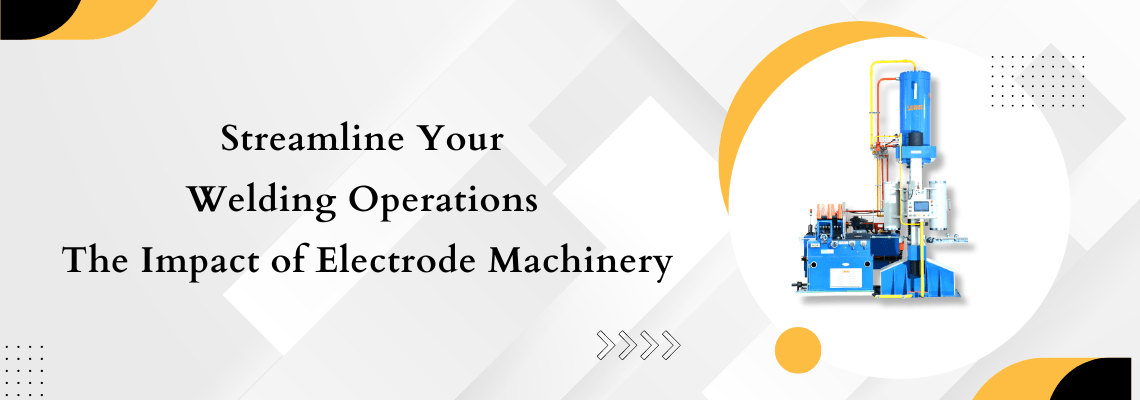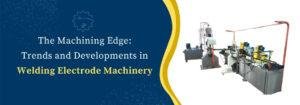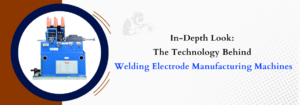Introduction
In the world of metal fabrication, welding is a critical process that forms the foundation of many industries. It plays a crucial role in constructing high-rise buildings, manufacturing automobiles, creating ships, and even assembling delicate electronic devices. However, the efficiency and effectiveness of welding operations heavily rely on the equipment and techniques employed. One such essential component of welding operations is electrode machinery. In this article, we will explore the impact of electrode machinery and how they can streamline your welding operations for enhanced productivity and quality outputs.
Understanding Electrode Machinery
Electrode machinery, also known as welding machines or arc welders, are devices that facilitate the welding process by providing the necessary electric current and heat. They are designed to create an electric arc between the electrode and the base material, which generates intense heat, leading to the fusion of the metals. Electrode machinery can be classified into different types based on the welding technique, such as Tungsten Inert Gas (TIG) welders, Metal Inert Gas (MIG) welders, and Stick welders. Each type possesses its own set of features, advantages, and applications.
Enhanced Efficiency
One of the significant advantages of using electrode machinery in welding operations is the enhanced efficiency they offer. These machines are built to deliver precise and controlled electric current, resulting in consistent heat generation and better fusion of metals. The ability to regulate the current ensures uniform penetration and welding quality, minimizing the occurrence of defects and rework. Additionally, electrode machinery enables faster deposition rates, reducing the overall welding cycle time. This increased efficiency translates to higher productivity and cost savings for welding operations.
Improved Welding Quality
Alongside efficiency, electrode machinery have a profound impact on the quality of welding outputs. The controlled electric current and optimal heat distribution provided by these machines contribute to better fusion and stronger weld joints. The precise control over the welding parameters ensures uniform penetration and minimizes the risk of voids, incomplete fusion, or cracks. Welding with electrode machinery also results in improved arc stability, enabling welders to have better control over the welding process, resulting in aesthetically pleasing and structurally sound welds.

Versatility and Flexibility
Another advantage of electrode machinery is its versatility and flexibility. These machines can adapt to various welding techniques, making them suitable for a wide range of applications. TIG welders are commonly used for welding thin materials like stainless steel or aluminum, offering excellent control, clean welds, and minimal spatter. On the other hand, MIG welders are preferred for thicker materials and high-speed welding, providing deep penetration and higher deposition rates. Stick welders, known for their ruggedness, are ideal for outdoor or remote welding in challenging environments. The availability of different types of electrode machinery caters to the diverse needs and demands of welding operations.
Portability and Accessibility
With advancements in technology, electrode machinery have evolved to become more compact and portable, allowing for greater accessibility. Portable welding machines empower welders to bring the equipment directly to the job site, eliminating the need for transporting heavy machinery. This portability is highly beneficial for construction sites, shipyards, and other industries where on-site weld repairs or modifications are frequently required. The accessibility provided by electrode machinery enhances the efficiency and effectiveness of welding operations by reducing downtime and increasing the overall productivity of welders.
Conclusion
In conclusion, electrode machinery are indispensable assets that significantly impact welding operations. Their ability to enhance efficiency, improve welding quality, offer versatility, and provide portability makes them essential tools in metal fabrication industries. By streamlining welding operations with electrode machinery, businesses can achieve higher productivity, reduced costs, and consistent, high-quality welds. As technology continues to advance, electrode machinery will undoubtedly evolve further, introducing more advanced features and capabilities to meet diverse welding needs. Embracing these advancements in electrode machinery will undoubtedly propel welding operations into a new era of efficiency and excellence.






